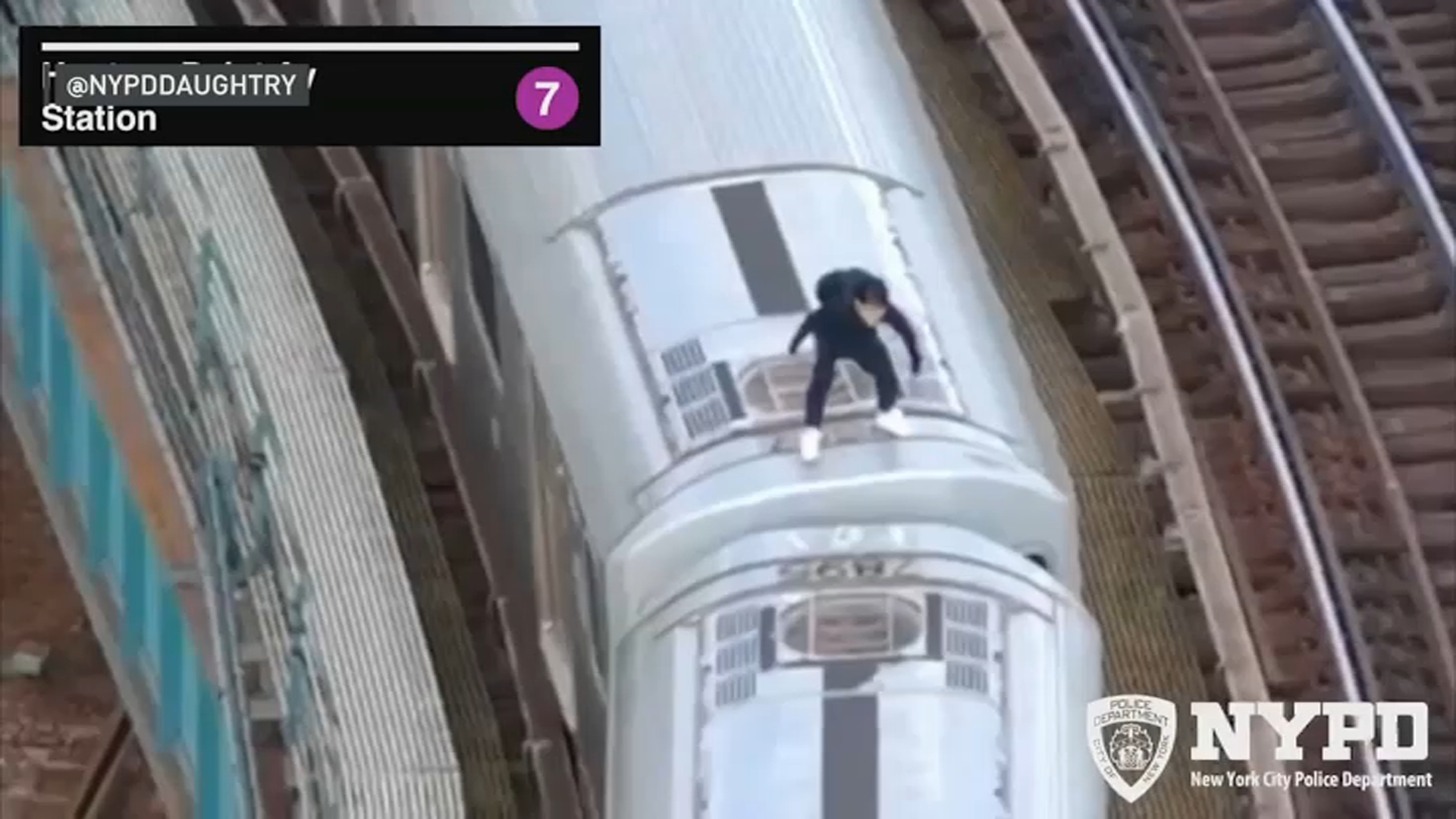What to Know
- An NYPD officer was suspended without pay hours after video surfaced showing him appearing to put a man into a banned chokehold while trying to detain him at a Queens beach
- Police Commissioner Dermot Shea said Monday the swift action was a sign of “unprecedented times"
- The officer involved once faced criminal charges alleging he pistol-whipped a teenage suspect and broke two of his teeth, records show
An NYPD officer removed from duty after he was recorded putting a man in what the police commissioner said was a banned chokehold once faced criminal charges alleging he pistol-whipped a teenage suspect and broke two of his teeth.
The police department moved quickly to suspend officer David Afanador without pay after Sunday's confrontation on the boardwalk at Rockaway Beach in Queens. Police Commissioner Dermot Shea said Monday the swift action was a sign of “unprecedented times."
“I think we have an obligation to act swiftly but we also have to get it right and to inform the public about what’s going on,” Shea told TV station NY1.
Shea announced the suspension hours only hours after video of the incident was posted on social media. Mayor Bill de Blasio praised the department's quick response to the incident.
"The public need to see when something goes wrong, there are consequences," the mayor said.
It's at least the second time Afanador has been suspended from the force. The officer was sidelined after his 2014 arrest, only to return to duty after a judge acquitted him and his partner of all charges in 2016.
News
In that case, Afanador was seen on video using his gun to hit a 16-year-old boy during a marijuana bust. The beating continued until the boy dropped to the ground and was handcuffed. That altercation, which came six weeks after the police chokehold death of Eric Garner, also made news headlines.
Afanador was involved in eight incidents that were the subject of complaints to the city’s police watchdog agency since joining the police department in 2005, according to records obtained Monday under a new state law making disciplinary files public.
They ranged from using discourteous language to use of physical force and refusing to seek medical treatment. All of the allegations to the city’s Civilian Complaint Review were either unsubstantiated or led to exoneration except for the ones stemming from the altercation that led to his arrest.
In Sunday's incident, in the wake of protests over George Floyd’s killing by police in Minneapolis, a video shot by one of the men involved in the altercation showed officers tackling a Black man and Afanador putting his arm around the man's neck as he lay face down on the boardwalk.
Body camera footage released later by police showed that for at least 11 minutes before the arrest, three men were shouting insults at the police and arguing with them while the officers implored them to walk away. Police said that one of the men, 35-year-old Ricky Bellevue, picked something out of the garbage and asked officers if there were "scared," just before he was taken down to the ground. The man was later treated at the hospital for a cut on his face.
“I put out the body camera footage yesterday and I think it tells a very different story than the initial video,” Shea said, adding that the men were "instigators" and blamed them for initially causing the incident. “But ultimately, you know, the hand around the neck is the hand around the neck and I dealt with that swiftly."
Chokeholds have long been banned by the NYPD and their use has been especially fraught since Garner died in 2014 after an officer put him in a chokehold while trying to arrest him. Gov. Andrew Cuomo last week signed a statewide ban on police chokeholds.
The speed with which the NYPD suspended Afanador stood in sharp contrast to the drawn-out police disciplinary process of years past.
“I think it’s unprecedented times,” Shea said, alluding to the public's demand for police accountability since Floyd's death.
Shea said he does not believe there is systemic racism in the NYPD. He testified Monday at the state attorney general's hearing on police officers' rough treatment of protesters.
Shea spent his morning defending his department against claims cops were too rough with protesters this past month.
The police commissioner's testimony was part of the Attorney General's review of police tactics during the last Month of unrest in New York. Last week she called Dounya Zayer, a protester on a viral video as she's pushed to the ground by Officer Vincent D'Andraia.
Officer D'Andraia was suspended without pay and later charged with criminal assault. He did not respond to our request for comment. Commissioner Shea testified he is one of just a handful of cops who've been disciplined during recent demonstrations - which included millions of police interactions with the public.
"In that context spanning over three weeks when you look at 5 or 10 people disciplined, I would say that's isolated [incidents]," Shea said.
He also spoke about the NYPD's policy on allowing civilians to film civilian interactions with NYPD, and touching upon Sunday's controversial arrest in Queens.
"We’ve had a strong policy and I think its been in existence, probably for over 20 years, regarding bystanders filming at the scene," he said. "Just yesterday in queens we’ve had an instance and its plain to see on body camera people filming at the scene. This happens everyday across New York City. It's allowed. The officers know that its allowed. Where it crosses the line is when the individuals cross that line into something akin to, typically OGA: obstructing governmental administration."
Shea's testimony comes days after Attorney General Letitia James publicly rebuked the police department and Mayor de Blasio for ignoring invitations to participate.



